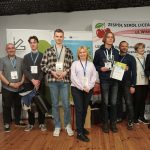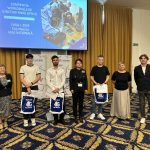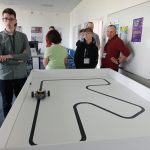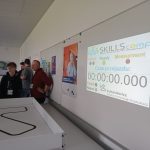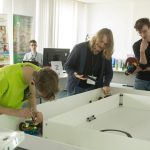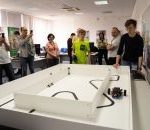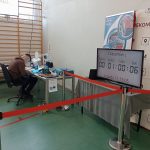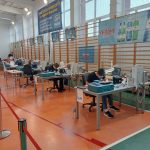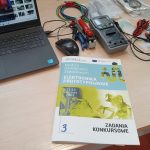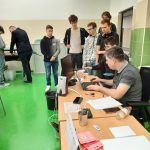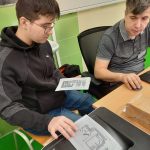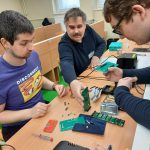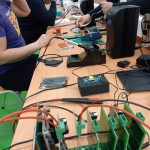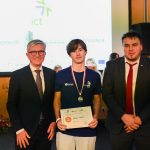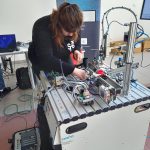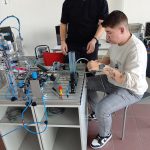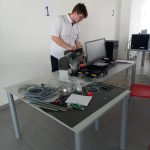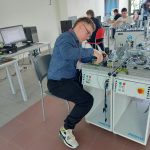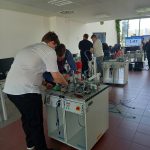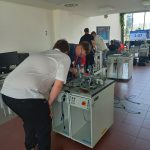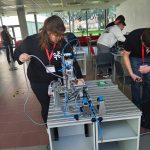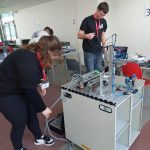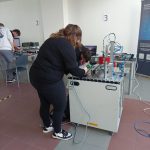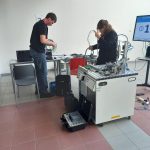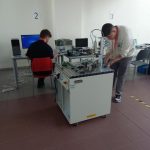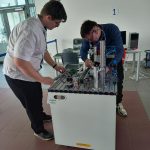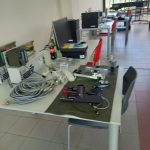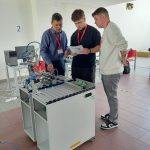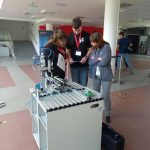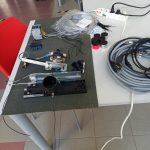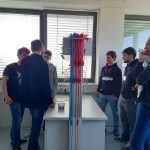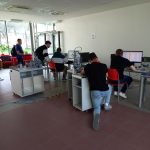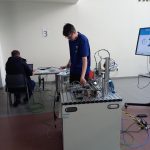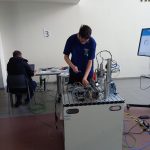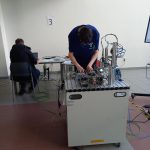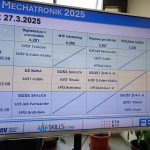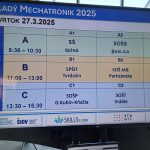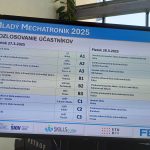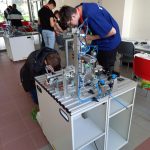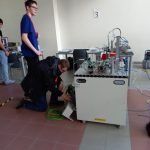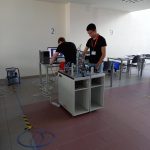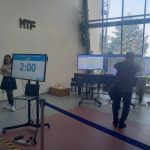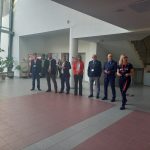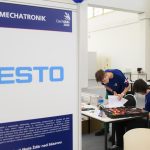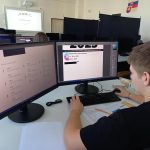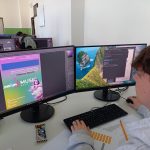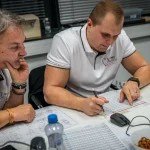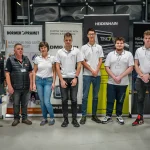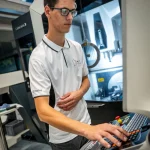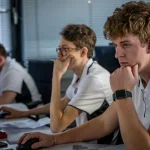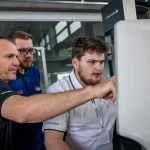- Home
- Skills Competitions
Skills Competitions
Poland
Winners
- Jakub Szymczak – Zespół Szkół Elektronicznych w Radomiu
- Wojciech Miazek – Zespół Szkół Elektronicznych w Lublinie
- Franciszek Bartke – Śląskie Techniczne Zakłady Naukowe w Katowicach
Partners


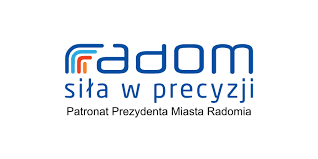


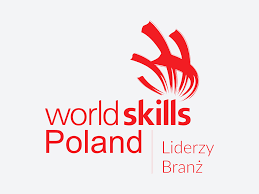
Media
Rules & regulations
Test projects
Test project_IT Network Systems Administration_semifinals_SK
Test project_IT Network Systems Administration_semifinals_RO
Test project_IT Network Systems Administration_semifinals_PL
Test project_IT Network Systems Administration_semifinals_ENG
Test project_IT Network Systems Administration_semifinals_CZ
Test project 5_ IT Network Systems Administration_finals_SK
Test project 5_ IT Network Systems Administration_finals_RO
Test project 5_ IT Network Systems Administration_finals_PL
Test project 5_ IT Network Systems Administration_finals_ENG
Test project 5_ IT Network Systems Administration_finals_CZ
Test project 4_ IT Network Systems Administration_finals_SK
Test project 4_ IT Network Systems Administration_finals_RO
Test project 4_ IT Network Systems Administration_finals_PL
Test project 4_ IT Network Systems Administration_finals_ENG
Test project 4_ IT Network Systems Administration_finals_CZ
Test project 3_ IT Network Systems Administration_finals_SK
Test project 3_ IT Network Systems Administration_finals_RO
Test project 3_ IT Network Systems Administration_finals_PL
Test project 3_ IT Network Systems Administration_finals_ENG
Test project 3_ IT Network Systems Administration_finals_CZ
Test project 2_ IT Network Systems Administration_finals_SK
Test project 2_ IT Network Systems Administration_finals_RO
Test project 2_ IT Network Systems Administration_finals_PL
Test project 2_ IT Network Systems Administration_finals_ENG
Test project 2_ IT Network Systems Administration_finals_CZ
Test project 1_ IT Network Systems Administration_finals_SK
Test project 1_ IT Network Systems Administration_finals_RO
Test project 1_ IT Network Systems Administration_finals_PL
Test project 1_ IT Network Systems Administration_finals_ENG
Marking scheme
Romania
Winners
- Stan Ștefan Mario de la Colegiul Tehnic De Poștă și Telecomunicații “Gheorghe Airinei”, București, prof. Coordonatori Georgescu Otilia și Zloteanu Dana
- Pașca Nicolae de la Colegiul Tehnic de Comunicații “Augustin Maior”, Cluj-Napoca, prof. Coordonator Goia Cristian Dan
- Balat Robert Iosif de la Colegiul Tehnic “Emanuil Ungureanu”, Timișoara, prof. Coordonator Vîlcea Elena
Partners



Rules & regulations
Test projects
Marking scheme
Poland
Winners
- Szymon Glinka – Technikum Lotnicze Zakładu Doskonalenia Zawodowego w Katowicach
- Kacper Piwowarski – Technikum Nowoczesnych Technologii w Kleszczowie
- Maciej Pałka – Zespół Szkół Elektronicznych w Rzeszowie
Partners






Media
Rules & regulations
Test projects
Test project_Mobile Robotics_finals_SK
Test project_Mobile Robotics_finals_RO
Test project_Mobile Robotics_finals_PL
Test project_Mobile Robotics_finals_ENG
Test project_Mobile Robotics_finals_CZ
Test project 4_Mobile Robotics_semifinals_SK
Test project 4_Mobile Robotics_semifinals_RO
Test project 4_Mobile Robotics_semifinals_PL
Test project 4_Mobile Robotics_semifinals_ENG
Test project 4_Mobile Robotics_semifinals_CZ
Test project 3_Mobile Robotics_semifinals_SK
Test project 3_Mobile Robotics_semifinals_RO
Test project 3_Mobile Robotics_semifinals_PL
Test project 3_Mobile Robotics_semifinals_ENG
Test project 3_Mobile Robotics_semifinals_CZ
Test Project 2_Mobile Robotics_semifinals_SK
Test Project 2_Mobile Robotics_semifinals_RO
Test Project 2_Mobile Robotics_semifinals_PL
Test Project 2_Mobile Robotics_semifinals_ENG
Test Project 2_Mobile Robotics_semifinals_CZ
Test project 1_Mobile Robotics_semifinals_SK
Test project 1_Mobile Robotics_semifinals_RO
Test project 1_Mobile Robotics_semifinals_PL
Poland
Winners
- Filip Krakowiak – Zespół Szkół Elektronicznych w Radomiu
- Zbigniew Tarnowski – Technikum Mechatroniczne nr 1 w Warszawie
- Bartłomiej Sieńko – Zespół Szkół Elektronicznych w Rzeszowie
Partners









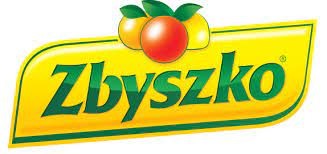





Media
Rules & regulations
Test projects
Test project_Electronics Prototyping_semifinals_SK
Test project_Electronics Prototyping_semifinals_RO
Test project_Electronics Prototyping_semifinals_PL
Test project_Electronics Prototyping_semifinals_ENG
Test project_Electronics Prototyping_semifinals_CZ
Test project_Electronics Prototyping_finals_SK
Test project_Electronics Prototyping_finals_RO
Test project_Electronics Prototyping_finals_PL
Slovakia
Winners
Winners Cat. A
1st place:
Daniel Viskup, SPŠ elektrotechnická, Ul. Karola Adlera 5, Bratislava
2nd place:
Lukáš Krčmárik, SŠ-SOŠ elektrotechnická, Zvolenská cesta 18, Banská Bystrica
3rd place:
Martin Mičuch, Gymnázium Šrobárova 1, Košice
Winners Cat.B
1st place:
Vratko Hajdučík, SPŠ informačných technológií
Gessaya, Medvedzie 133/1, Tvrdošín
2nd place:
Ondrej Peter, SPŠSE, Ul. Fraňa Kráľa 20, Nitra
3rd place:
Richard Kán, SPŠ Jozefa Murgaša, Hurbanova 6, Banská Bystrica
Partners
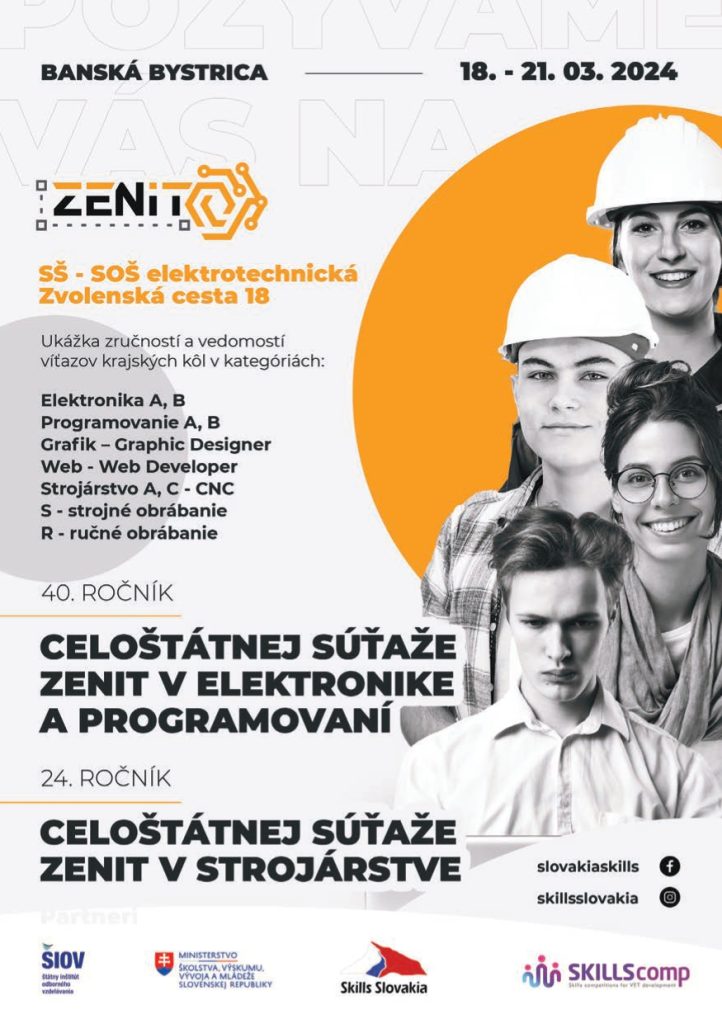
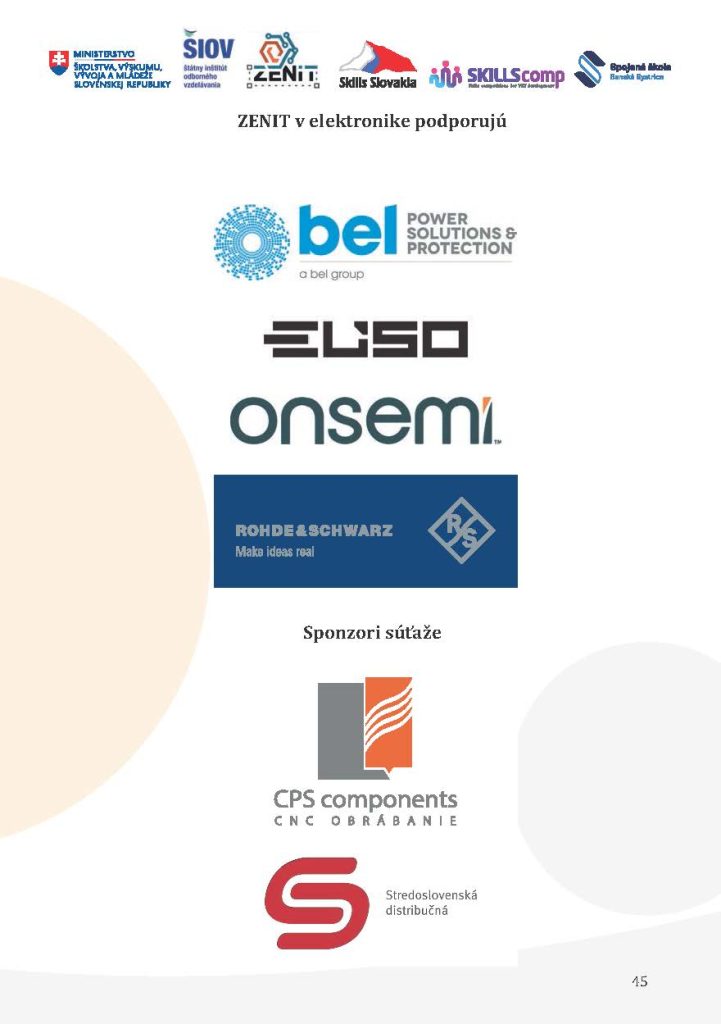
Rules & regulations
Competition rules 2_electronics_finals_SK
Competitions rules_electronics_finals_RO
Competition rules 2_electronics_finals_RO
Competitions rules_electronics_finals_CZ
Competition rules 2_electronics_finals_CZ
Competitions rules_electronics_finals_PL
Competition rules 2_electronics_finals_PL
Competitions rules_electronics_finals_SK
Test projects
Romania
Winners
- AMANCIA ANDREI COSMIN de la Colegiul Național “Alexandru Ioan Cuza” Ploiești, profesor coordonator Constantinescu Elena Emilia
- CHIRILĂ DANIEL ȘTEFAN de la Liceul Teoretic „Alexandru Ioan Cuza” București, profesor coordonator Corina Badea
- LUPȘĂ LUCIAN MIHAI de la Liceul Teoretic de Informatică „Alexandru Marghiloman” Buzău, profesor coordonator Luiza Loredana Avram
Partners





Rules & regulations
Test projects
Test project 3_Web development_Finals 2024_PL
Test project 3_Web development_Finals 2024_RO
Test project 3_Web development_Finals 2024_SK
Test project 4_Web development_Finals 2024_CZ
Test project 4_Web development_Finals 2024_ENG
Test project 4_Web development_Finals 2024_PL
Test project 4_Web development_Finals 2024_RO
Test project 4_Web development_Finals 2024_SK
Test project 1_Web development_Finals 2024_CZ
Test project 1_Web development_Finals 2024_ENG
Test project 1_Web development_Finals 2024_PL
Test project 1_Web development_Finals 2024_RO
Test project 1_Web development_Finals 2024_SK
Test project 2_Web development_Finals 2024_CZ
Test project 2_Web development_Finals 2024_ENG
Test project 2_Web development_Finals 2024_PL
Test project 2_Web development_Finals 2024_RO
Test project 2_Web development_Finals 2024_SK
Marking scheme
Marking scheme_Web development_Module 2_finals2024_SK
Marking scheme_Web development_Module 3_finals2024_CZ
Marking scheme_Web development_Module 3_finals2024_ENG
Marking scheme_Web development_Module 3_finals2024_PL
Marking scheme_Web development_Module 3_finals2024_RO
Marking scheme_Web development_Module 3_finals2024_SK
Marking scheme_Web development_Module 4_finals2024_CZ
Marking scheme_Web development_Module 4_finals2024_ENG
Marking scheme_Web development_Module 4_finals2024_PL
Marking scheme_Web development_Module 4_finals2024_RO
Marking scheme_Web development_Module 4_finals2024_SK
Marking scheme_Web development_Module 1_finals2024_CZ
Marking scheme_Web development_Module 1_finals2024_ENG
Marking scheme_Web development_Module 1_finals2024_PL
Marking scheme_Web development_Module 1_finals2024_RO
Marking scheme_Web development_Module 1_finals2024_SK
Marking scheme_Web development_Module 2_finals2024_CZ
Marking scheme_Web development_Module 2_finals2024_ENG

Czech Republic
Winners
WEB návrhář designer
1. | Matyáš Zbirovský | Střední škola a vyšší odborná škola aplikované kybernetiky Hradec Králové |
2. | Tomáš Mladějovský | Střední odborná škola informatiky a spojů a Střední odborné učiliště, Kolín, Jaselská 826 |
3. | Oskar Petr | Střední škola a vyšší odborná škola aplikované kybernetiky Hradec Králové |
4. | Vojtěch Tmej | Střední škola technická a dopravní Gustava Habrmana Česká Třebová |
5. | Ondřej Zeman | Střední škola informatiky, poštovnictví a finančnictví Brno |
6. | Ondřej Boháček | Střední škola informatiky, poštovnictví a finančnictví Brno |
Soutěžící Rumunsko – WorldSkills Romania
1. | Chirila Daniel | LICEUL TEORETIC ALEXANDRU IOAN CUZA, BUCUREȘTI |
Partners

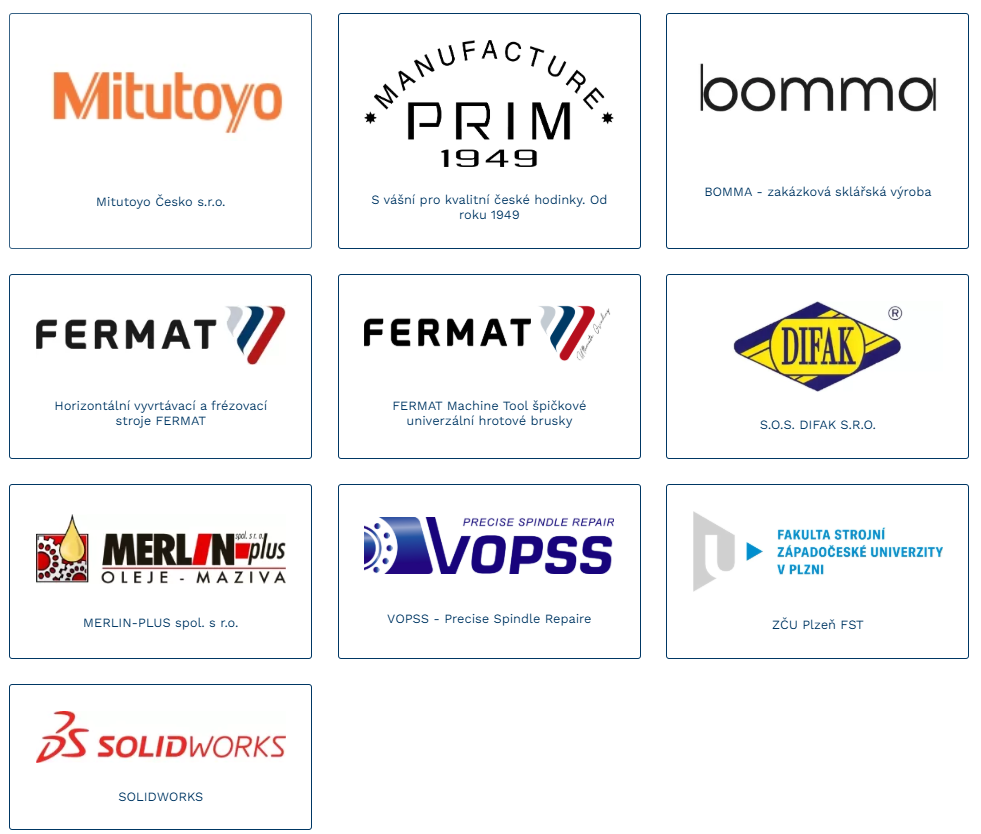

Rules & regulations
Test projects
Slovakia
Winners
1st place:
Nikolas Chytil, Martin Filuš,
SPŠT, Komenského 1, Trnava
2nd place:
Michal Novák, Samuel Dzurčanin,
SPŠE, Komenského 44, Košice
3rd place:
Andrej Kočiš, Filip Toporcer,
SPŠT, Hviezdoslavova 6, Spišská Nová Ves
Partners
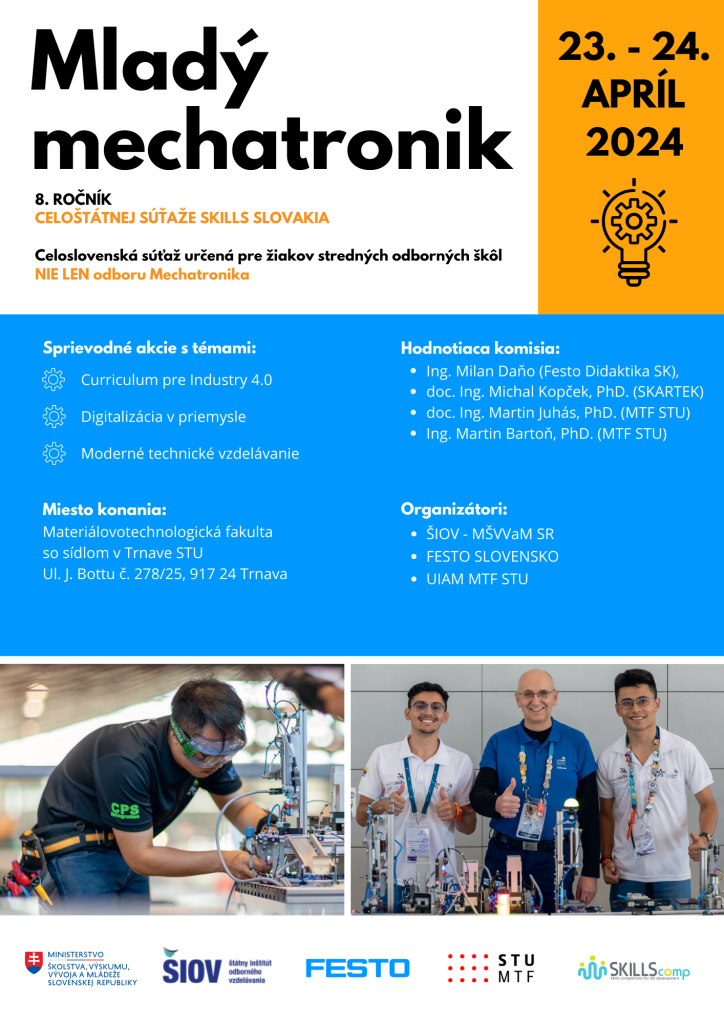
Rules & regulations
Test projects

Czech Republic
Winners
MECHATRONIK – týmy
| 1. | Tomáš Vejlupek Ondřej Klimeš | Střední průmyslová škola Žďár nad Sázavou |
| 2. | Lubomír Žák Matouš Kuruc | Střední průmyslová škola TOS VARNSDORF s.r.o. |
| 3. | Ondřej Sýkora Dominik Kráčmer | Střední odborná škola a Střední odborné učiliště Lanškroun |
Partners



Rules & regulations
Test projects
Slovakia
Winners
1st place:
Táňa Zgútová, SOŠ informačných technológií,
Tajovského 30, Banská Bystrica
2nd place:
Timotej Ilklo, SPŠ informačných technológií, Ignáca Gessaya,
Medvedzie 133/1, Tvrdošín
3rd place:
Eva Gubáňová, Súkromná SOŠ,
Ul. 29. augusta 4812, Poprad
Partners
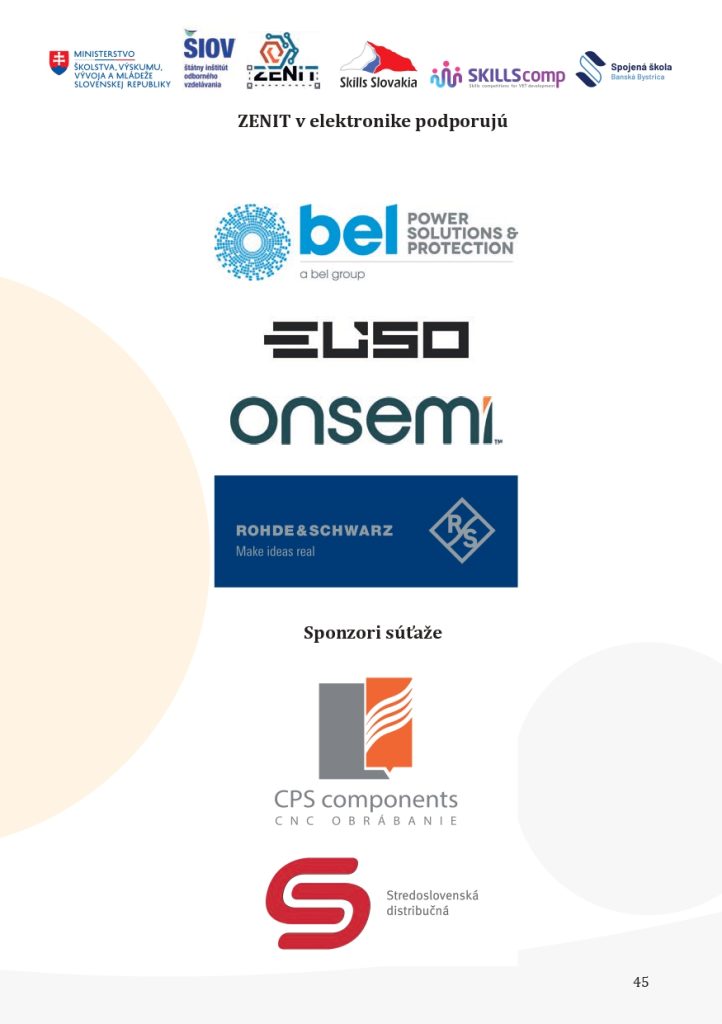
Rules & regulations
Competitions rules_2 web graphic_finals_PL
Competitions rules_4 web graphic_finals_PL
Competitions rules_4 web graphic_finals_CZ
Competitions rules_4 web graphic_finals_RO
Competitions rules_3 web graphic_finals_ENG
Competitions rules_3 web graphic_finals_RO
Competitions rules_3 web graphic_finals_CZ
Competitions rules_3 web graphic_finals_PL
Competitions rules_1 web graphic_finals_PL
Competitions rules_1 web graphic_finals_CZ
Competitions rules_1 web graphic_finals_RO
Competitions rules_4 web graphic_finals_SK
Competitions rules_1 web graphic_finals_ENG
Competitions rules_1 web graphic_finals_SK
Competitions rules_4 web graphic_finals_ENG
Competitions rules_3 web graphic_finals_SK
Competitions rules_2 web graphic_finals_ENG
Competitions rules_2 web graphic_finals_SK
Test projects
Test project_1 Webgraphic_finals_2024_PL
Test project_1 Web graphic_finals_2024_CZ
Test project_2 Web graphic_finals_2024_PL
Test project_2 Web graphic_finals_2024_CZ
Test project_2 Web graphic_finals_2024_RO
Test project_1 Web graphic_finals_2024_RO
Test project_1 Web graphic_finals_2024_ENG
Test project_2 Web graphic_finals_2024_SK
Test project_1 Web graphic_finals_2024_SK
Test project_2 Web graphic_final_2024_ENG

Marking scheme
Romania
Winners
- MORAR ERIK CĂTĂLIN – LICEUL TEHNOLOGIC „CONSTANTIN BRÂNCUȘI”, DEJ, PROFESOR COORDONATOR BADIU GABRIEL ADRIAN
- IOAN TUDOR-MIHAI – COLEGIUL NAȚIONAL „MIHAI VITEAZUL” PLOIEȘTI, PROFESOR COORDONATOR GEORGESCU ALICE
- ION EDUARD MARIAN – COLEGIUL „SPIRU HARET” PLOIEȘTI, PROFESOR COORDONATOR STROE SOFIA
Partners



Rules & regulations
Test projects

Czech Republic
Winners
CNC frézování – Mistr ČR v CNC frézování 2024
1. | Martin Škareda | Wstec s.r.o. Žďár nad Sázavou |
2. | Dominik Vostradovský | GE Aviation Czech |
3. | Filip Klátil | Západočeská univerzita Plzeň, fakulta strojní |
4. | Lukáš Petr | Vysoké učení technické v Brně, fakulta strojního inženýrství |
5. | Tomáš Svoboda | AAM Metal Forming Oslavany |
6. | Richard Budínský | Střední škola technická Opava |
Partners



Rules & regulations
Test projects
The general objective of the SkillsComp project is to support the idea of regional and national vocational skills competitions.
In the project, Poland, Romania, Czech Republic and Slovakia transform their traditional competitions and organize practical skills competitions based on the WorldSkills format. Skills competitions raise the profile and recognition of skilled people, and show how important skills are in achieving economic growth. WorldSkills and EuroSkills are international events similar to sports Olympics where individual countries are represented by teams of competitors who compete in different skills. These are multi-day events with opening and closing ceremonies led by officials. Although Poland, Romania, Czech Republic and Slovakia are part of the initiative, it still needs to be promoted among VET schools and professional associations that belong to the manufacturing and engineering industries.
The total number of skills competitions delivered by the SkillsComp project was 12. Each partner selected 3 skills and collaborated with 3 different VET schools or associations related to those skills in order to organize 3 skills competitions based on the format of WorldSkills events.
We believe that competitions make vocational careers more attractive to the young and let VET students improve their skills. Skills competitions based on practical test projects move from the traditional knowledge based competitions toward the new practical format which also increases awareness of the WorldSkills initiative.
Vocational skills competitions in Poland, Romania, Czech Republic and Slovakia were not only industry competitions but opportunities to learn, exchange experiences and make valuable contacts. The events demonstrated the importance of technical skills in modern labour market, and their success confirmed the need to support practical training and cooperation among VET schools and businesses. Our activities focused on trade schools and technical schools as individual entities with the potential to plan and implement vocational skills competitions into the teaching process. Finally, the competitions promoted national WorldSkills organizations, which demonstrate the importance of skills, motivate young people to learn their trade and excel in their craft.







